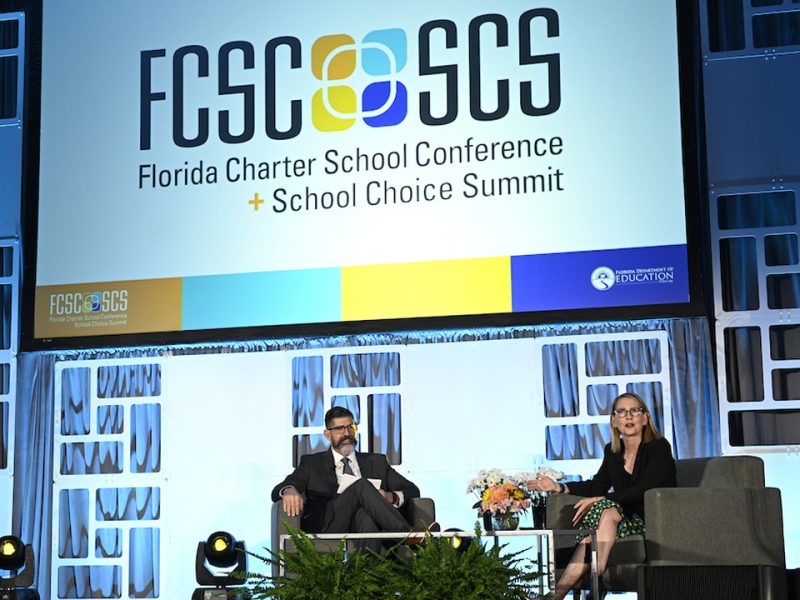Should Schools Assign Summer Homework? Educators Weigh In
EducationWeek | By Elizabeth Heubeck | May 30, 2023
School’s almost out for summer. Should students clear out their lockers and leave empty-handed—or laden down with stacks of math problems and required reading lists? Will teachers warn of repercussions for failing to turn in summer work assignments upon returning to school in the fall, or simply advise students to have fun and stay safe?
It depends on whom you ask.
It turns out that not all educators share the same perspective on whether to assign summer homework, who needs it most, what it should consist of, and how to make sure it gets done. Education Week put the question to state teachers of the year and representatives of statewide principals associations. Here’s what they had to say.
Play and pleasure reading prioritized by many educators
Play and pleasure reading topped the list of responses to the question: What summer homework should students be assigned? Teachers (of both young and older students) were more likely than the principals who responded to suggest that kids need a break in the summer.
“For young children, specifically pre-K to grade 3, I feel that over the summer children need to have their summer break and be provided with the opportunity to explore, get plenty of physical activity, and play. Children learn from play. Play teaches children about problem-solving and social interactions,” said Tara Hughes, a pre-K inclusion teacher at the Nye Early Childhood Center in Santa Fe who was voted 2023 New Mexico State Teacher of the Year.
“Students should have no formal ‘homework’—worksheets or practice books,” said Lori Danz, who is Wisconsin’s 2023 State Teacher of the Year. She teaches high school biology and serves as a school forest coordinator, overseeing outdoor learning. in the Superior school district in the northern part of the state. “I think it’s good for students and families to get away from that, and learn in authentic ways: hiking, cooking, fixing things. So much learning happens that way. We forget that it’s learning.”
Danz acknowledged that not every family has the same amount of free time or resources available to them during the summer. But she added that many districts, including her own, offer free enrichment activities at local schools during the summer that provide activities such as sports, crafts, and physical fitness.
While “play” was a popular response to the question of what type of work kids should be assigned in the summer, some educators suggested that students of all ages read during break to stay sharp.
“Reading for pleasure authentically enhances many academic skills such as cultivating a love for reading, improves reading and writing skills, develops concentration, encourages creativity and imagination, and allows children to be more open to differences and perspectives,” said Krystal Colbert, a 2nd grade teacher at Mitchellville Elementary in Iowa’s Southeast Polk school district, and another Teacher of the Year.
One teacher took the reading directive a step further. Brian Skinner, a high school special education teacher with the Newton Unified school district 373 in Kansas and the state’s 2023 Teacher of the Year, said he thinks students should spend time regularly writing and reading for pleasure. “Not only that, but I believe it is important to read from actual books versus phones or other technology,” Skinner said. It’s a belief shared by some literacy experts, too.
Which students most need summer work?
Educators offered a range of opinions when asked which students most need summer work. Principals interviewed for this article were more likely than teachers to feel students should be doing summer work.
“How good is a golfer that takes a three-month break with no practice? Even if you do not play nine or 18 holes regularly, you can go the range, you can chip, you can practice putting,” said Jerald A. Barris, a high school principal at the Pennsylvania Cyber Charter School in Midland, Pa., and a regional representative for the Pennsylvania Principals Association.
Ed Roth, the principal of Penncrest High School in Media, Pa., believes in math homework over the summer for high school students. “In mathematics, it is important for students to have some review and skills practice so that they do not need to spend the first marking period reviewing prior learning, therefore taking away their ability to cover all necessary content for their current course,” he said. Roth’s perspective, which suggests the loss of skills during summer break, has been well-documented in recent research.
But other educators favor a more tailored approach to summer work.
Danz, the Wisconsin high school biology teacher, said that she believes all students need a break from homework but added this caveat: “You can always find exceptions…students who may need remedial practice.”
Fabiana Parker, the 2023 Virginia Teacher of the Year, agreed. A teacher of English learners at Thornburg Middle School in Spotsylvania County, Va., Parker said “it is essential to take into account the unique needs of each student” when it comes to summer work. She elaborated with an account of her own children, recalling how she established a routine of daily math practice during the summer but only for her daughter who struggled with math and, in Parker’s assessment, needed the additional support.
Other educators said they are more likely to assign summer work to students on an accelerated track. Such is the case for Michael Ida, Hawaii’s 2023 Teacher of the Year. He teaches at Kalani High School in Honolulu. Ida said that, for most high school students, he recommends no summer work other than reading for pleasure. But he makes an exception for students who choose to enroll in more rigorous courses.
“I teach AP Calculus, and those students do have some required review work to complete over the summer,” Ida said. He gives them math problems that he has created—both routine review problems and more substantial problem solving exercises that emphasize logical thinking and communication.
A creative approach to summer work
Summer should be synonymous with creative learning, some educators emphasized. “Summer is a time to continue learning in the way that every child in every classroom should be taught, with a focus on each child’s passions and strengths and in the way that is most effective for them,” said Catherine Matthews, a pre-K special education teacher at Hyalite Elementary School in Bozeman, Mont., and the state’s 2023 Teacher of the Year.
“If a child is struggling with fractions but loves to cook, allow them to practice their math skills while doing something that they love. If they need to practice their reading fluency, allow them to choose books of personal interest,” Matthews added.
Second grade teacher Colbert expressed a desire for kids to experience the type of old-fashioned summer that, for countless students, no longer exists. “My wish is that all kids are outside exploring the beautiful world around them, interacting with their friends and family, growing their inquisitive minds, fostering their creativity, and limiting the use of technology,” she said.
Who’s responsible for making sure summer work gets done?
Assigning summer work is one thing; monitoring its completion is another.
Pennsylvania high school principal Barris said parents are ultimately responsible for making sure their kids do the work. “I believe it should fall on the parents for the most part with opportunities, suggestions, and strategies provided by the school in concert with the community where the child resides,” he said, while acknowledging this challenge.
“That said,” he added, “getting my 11-year-old to read and practice his skills in the summer is easier said than done.”






